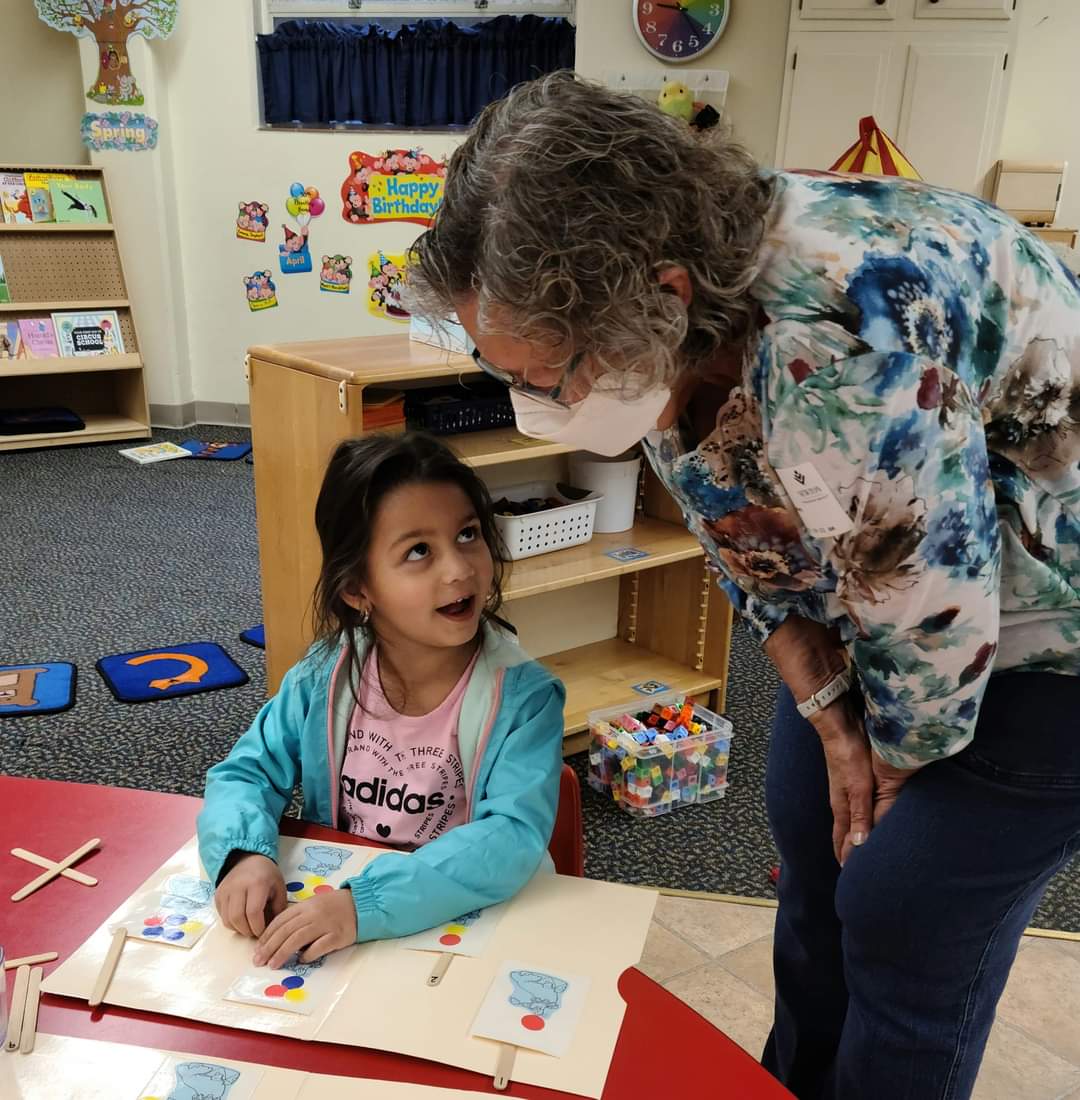NEWTON — “Intergenerational interaction” is one of the hottest concepts around, based on the idea that people of different ages can learn and benefit from each other.
It seems that Newton Presbyterian Manor anticipated the trend. The senior living community last month celebrated the 30th anniversary of opening the Apple-A-Day preschool inside its halls.
Whether residents are volunteering at the preschool or just occasionally interacting with the children, they like it.
“Oh, it’s great,” June Thomsen, who volunteers in the preschool one day a week, said. “You get to play with Play-Doh. And you get lots of steps going to the restroom.”
Thomsen is one of five Newtonians who currently volunteer at the school.
“From my perspective, they bring an extra set of hands and an extra heart to give love and kindness to children who may be having a difficult day or who just need special attention on a particular day,” said Renee Hamm, the preschool director. “They allow the teachers and myself to do our jobs. They are our bonus adults in the classroom.”
The unusual arrangement came about in 1992 when a popular pre-school here announced it was closing. An employee of Presbyterian Manor suggested taking it on.
“It was the first to be located in a (senior living) facility,” Hamm said, adding that it took the state a while to figure out how various regulations would apply. Presbyterian Manor reworked its interior to create a large classroom that Hamm describes as “at least twice the size of school classrooms.”
Today, 36 children attend the pre-school, split into three groups that meet at different times of the week. Attendance is down about 25 percent since before the pandemic.
In addition to Thomsen, two other volunteers — JoAnn Johnson and Noreen Penner — live in Presbyterian Manor while Stella Whitney and Nancy Law are volunteers from the community.
Hamm said other residents enjoyed interacting with the kids as well before the pandemic, and she’s hopeful they will be able to again soon. The Manor offers three levels of care to about 160 residents.
“Normally, each class would go to specific neighborhoods of the building each week, the same group weekly. Unfortunately, we have not been able to do that.”
Some residents were fond of sitting in the lobby to see children come and go from the preschool “because they just want to see the kids. That part has been greatly missed, but hopefully we’ll head back in that direction next year.”
She said residents can see preschoolers frolic on their playground, located in the Manor’s courtyard.
Despite the current interest in intergenerational interaction, it doesn’t appear that any other senior living communities currently operate preschools in this area, although some have day care centers and many welcome intergenerational events.
“It’s a pretty big undertaking,” saidNoelle Jost, Presbyterian Manor’s director of marketing. “You’re adding staff. You’re adding a program that — yes, it’s revenue producing — but you need to break even. You need space. It really took a vision and a push to make this happen a long time ago.”
She highly recommends it, though.
“I feel like the mix — especially when we’re able to interact with residents — is such a win-win. Children benefit from learning from people much older than them that they may not have present in their own families. Plus, you know that those who live and work here love having giggles and laughter and music in the building. They’re just so honest and sweet. It just adds lots of life.”
Thomsen thinks so. A Manor resident for three years, she started volunteering in the preschool this year. Asked what impact she thinks she’s had on the preschoolers, she first said, “I have no way of judging what the children get out of my participation, although some of them do like to give me hugs or sit on my lap or hold my hand when we walk in the hallways. I get all the emotional benefit of all that touching and hugging and smiling.”
After thinking a bit, she added, “I have appreciated seeing the growth of the children from the fall to the spring, and how much they learned — not just letters and numbers — but also social development. How to be kind to each other, most of the time, and play with one another more than they did to start with.”









